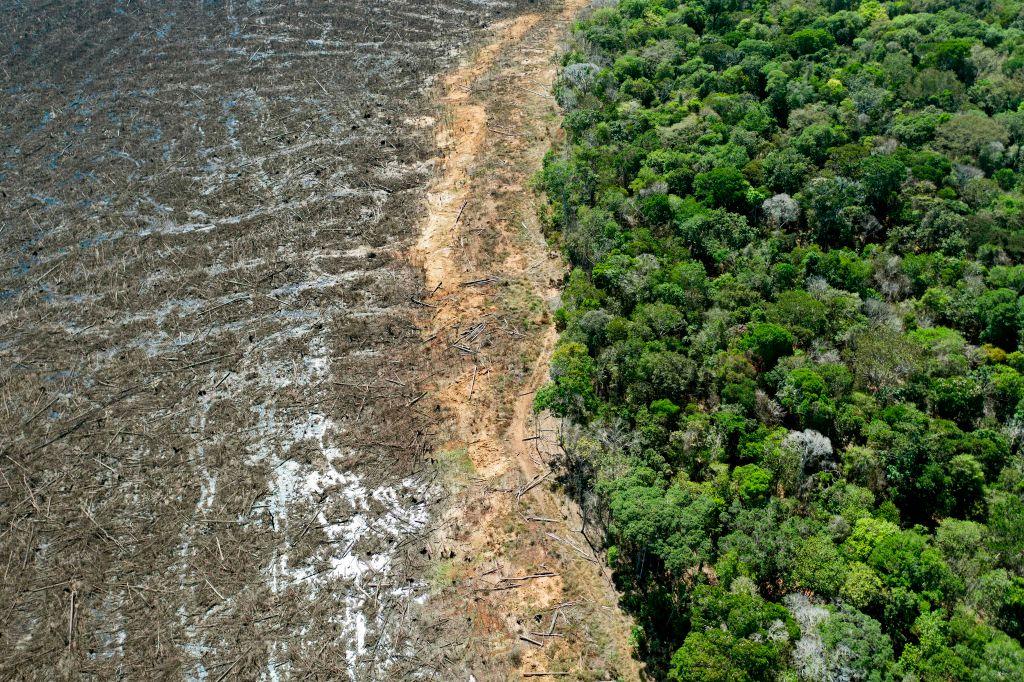The European Commission has proposed delaying by one year the implementation of a law banning the import of commodities linked to deforestation following industry pressure.
EU Poised to Delay Anti-Deforestation Law by a Year
Under the law, companies will be required to use satellite monitoring to ensure their products are not produced on land that has been deforested or degraded.

A deforested area close to Sinop, Mato Grosso State, Brazil, on Aug. 7, 2020. Florian Plaucheur/AFP via Getty Images



